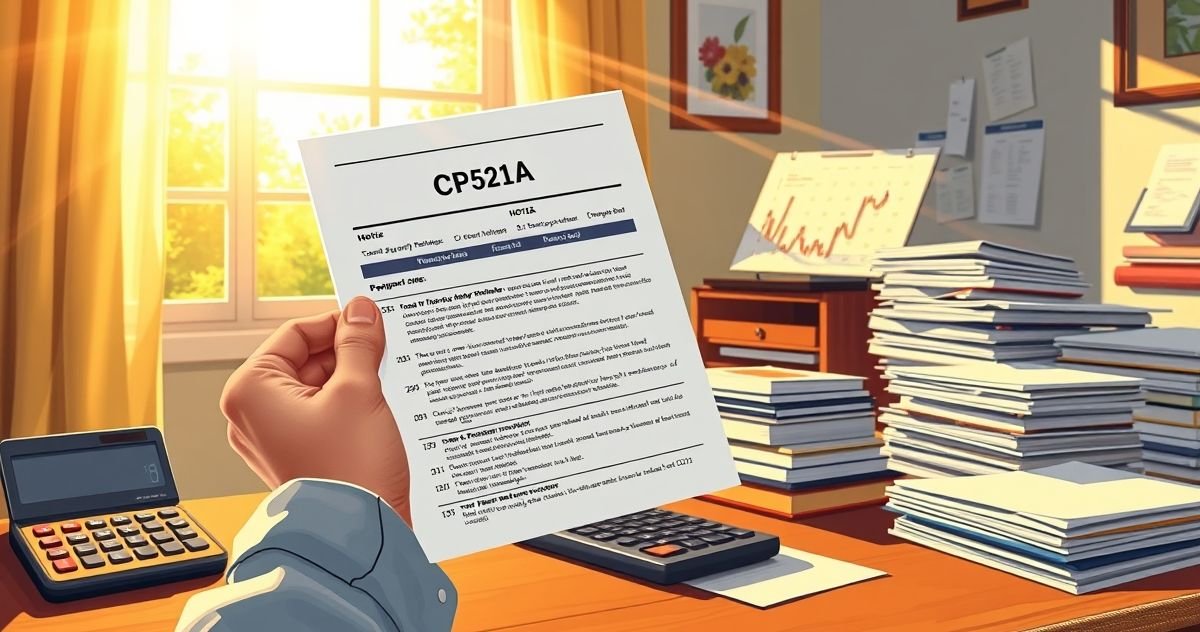Introduction to the CP521A Notice
The CP521A Notice is an official communication issued by the Internal Revenue Service (IRS) to inform taxpayers about their installment payment arrangement details. This notice is vital for taxpayers who have sought to resolve their tax liabilities through an installment agreement, ensuring they remain informed of their obligations and avoid potential penalties or complications.
Purpose of the CP521A Notice
The primary purpose of the CP521A Notice is to communicate details pertaining to a taxpayer’s agreed-upon installment plan with the IRS. This includes information on payment schedules, outstanding balances, and any adjustments or requirements associated with the installment plan. By keeping taxpayers informed, the IRS ensures there is a clear understanding of what is required to maintain the agreement, ultimately aiding in efficient tax resolution.
Key Features of the CP521A Notice
- Payment Obligations: The notice outlines precise amounts due and the due date for each installment payment. It is crucial to adhere to this schedule to avoid default.
- Balance Information: An updated summary of the remaining balance on the taxpayer’s account is provided to ensure transparency and accuracy.
- Changes or Adjustments: If there are any modifications to the terms of the installment agreement, they are detailed in the notice, providing the taxpayer with timely updates.
- Contact Information: Provides contact details for any queries or issues the taxpayer may have regarding their agreement.
Compliance Requirements
Maintaining compliance with an installment agreement is critical. The CP521A Notice reminds taxpayers of the importance of making timely payments and meeting all conditions stipulated in the agreement. Here are crucial compliance requirements highlighted in the notice:
- Timely Payments: Failure to make a payment by the due date could result in default of the installment agreement, leading to penalties and additional interest.
- Filing Obligations: Taxpayers must continue to file all required tax returns on time during the duration of the installment agreement.
- Financial Disclosure: The taxpayer might be required to submit updated financial information periodically if requested by the IRS.
Penalties for Non-Compliance
If a taxpayer fails to comply with the terms outlined in the CP521A Notice, there can be significant consequences, including:
- Termination of Agreement: Non-compliance could lead to the termination of the installment agreement.
- Immediate Payment Demand: Upon default, the IRS may demand immediate full payment of the outstanding tax amount.
- Increased Penalties and Interest: Additional penalties and interest charges may accrue on any overdue amounts.
- Enforcement Actions: The IRS may initiate collection actions, such as levies or liens on taxpayer assets.
Importance in Tax Resolution
The CP521A Notice plays a vital role in tax resolution by providing clear, actionable information that helps taxpayers manage their financial obligations efficiently. For taxpayers aiming to settle their tax debts without facing punitive measures, this notice is a lifeline.
Here’s why the CP521A is significant:
- Maintains Communication: Through notices like the CP521A, the IRS ensures constant communication regarding your tax situation, helping avoid unexpected issues.
- Enhances Compliance: By clearly outlining responsibilities, it encourages adherence to tax laws and ensures that taxpayers do not inadvertently breach their agreements.
- Facilitates Financial Planning: With complete information readily available, taxpayers can better plan their finances, setting aside necessary funds and maintaining a budget that includes installment payments.
Conclusion
Understanding the CP521A Notice is essential for taxpayers with installment agreements with the IRS. This notice not only provides detailed guidance on maintaining agreement compliance but also aids in preventing severe financial consequences due to non-compliance. By adhering to the terms and actively managing their agreement terms, taxpayers can successfully resolve their tax obligations while avoiding unnecessary penalties or interest charges. The CP521A Notice is thus an essential instrument in ensuring a smooth and manageable tax resolution process.



